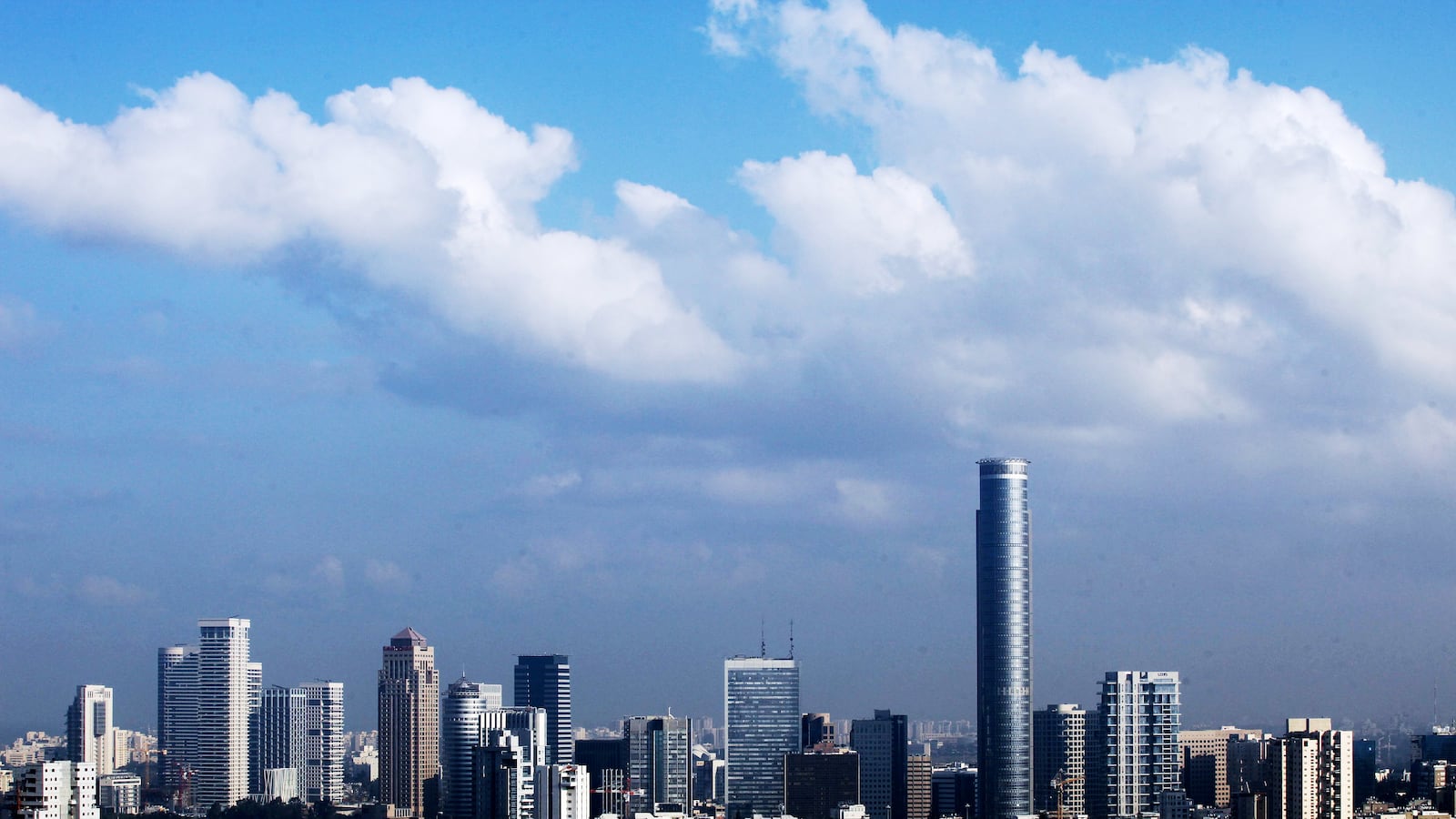If Israel is preparing to wage war against Iran, as Prime Minister Benjamin Netanyahu increasingly intimates, you wouldn’t know it walking around Tel Aviv.
In the city that Iran has threatened to pummel with missiles in response to any attack, many of the public bomb shelters are dusty and neglected. The gas masks, which Israel distributed to residents in previous times of tension, remain mostly in storage. And the people—large numbers of them anyway—seem to treat the threat with an air of hipster indifference.
Their attitude might well offer a clue about Israel’s real intentions. Many analysts believe that Netanyahu is exaggerating the probability of an Israeli attack on Iran’s nuclear installations—which would likely drive up the price of oil and roil economies worldwide—in order to nudge the U.S. and other countries to thwart Iran, whether through sanctions or military action of their own.
But mostly it seems to say something about Tel Aviv, by reputation Israel’s party capital, where residents pride themselves on being removed from the political and religious tensions that plague, say, Jerusalem, the real capital.
So much so that Israelis have a name for the city, sometimes invoked by the non-denizens with palms up and more than a hint of disdain: the Bubble.

The moniker is not entirely justified. Tel Aviv has had its share of drama and violence over the years, including Palestinian suicide attacks, a political assassination, and a monthlong period during the first Gulf War in 1991 when Saddam Hussein rained missiles on and around the city.
One of Tel Aviv’s iconic images is the transmission tower that rises high above the Defense Ministry, the sprawling complex where wars are plotted, including the one against Iran if it comes to pass.
But in day-to-day life, people here say, those things get subsumed by the city’s more prevailing features, including the Mediterranean shoreline that imbues Tel Aviv with the casual feel of a beach town. Travel guides routinely cite the city’s club scene and gay life as reasons to visit—the threat of war in Israel notwithstanding. Last year, Lonely Planet pointed out that the city has “more bars than synagogues” and that “hedonism is the one religion that unites its inhabitants.” The observation is only part hyperbole: election results show Tel Aviv residents are more liberal and more secular than most of Israel.
“We’re different from the rest of the country,” says Yael Dayan, a member of the city council and the daughter of a man who for years was held up as the model of the modern, secular Israel—Moshe Dayan. “We have different things on our mind, different priorities,” she told The Daily Beast.
By way of example, she cited a top agenda item on the council’s meeting next week: not Iran or the tensions that have flared lately with Palestinians in Gaza but rather ways the city can make better use of Facebook to keep in touch with its residents.
The levity can rub some people the wrong way. A filmmaker I met some months ago, Ra’anan Alexandrowicz, told me he lived in Tel Aviv for years but left because it felt unbearably lighthearted. He now lives in Jerusalem.
It also can create the illusion among residents of the bubble that most Israelis share their outlook, a notion contradicted by opinion polls. One Israeli journalist has described hearing dismay from a Tel Aviv friend who expected the left-wing Meretz Party to do better in the last national election in 2009. “Everyone I know voted Meretz,” she told him. The party drew just 3 percent of the vote nationally but nearly 8 percent in Tel Aviv.
Dayan says that part of what accounts for the relative calm on Iran is a feeling that Israel’s enemies know the arithmetic of war: targeting Tel Aviv is different from launching missiles at outlying areas like Sderot, which has been hit repeatedly from Gaza. To attacks on its main metropolis, Israel would respond with exceeding severity.
But the calculation is unlikely to hold up if Israel does indeed attack Iran, according to analysts. Densely populated and dotted with strategic targets—including the Defense Ministry—Tel Aviv will probably be the first place Iran aims its rockets.
Dayan concedes that residents might be too sanguine but says city officials do not want to tip the scale in the other direction and cause fear.
On the municipality website, a page on safety and security offers general information about emergency situations, but a map of neighborhood bomb shelters comes up as a dead link.
A quick tour I did of shelters in one north Tel Aviv neighborhood was only slightly more informative. Two of the four were bolted shut and the other two, situated on school grounds, were being used as storage space for spare furniture and supplies.
“Preparation for war is a delicate point. We don’t want people to panic,” Dayan says. “But we have had discussions about how maybe Tel Aviv residents are overconfident.”






